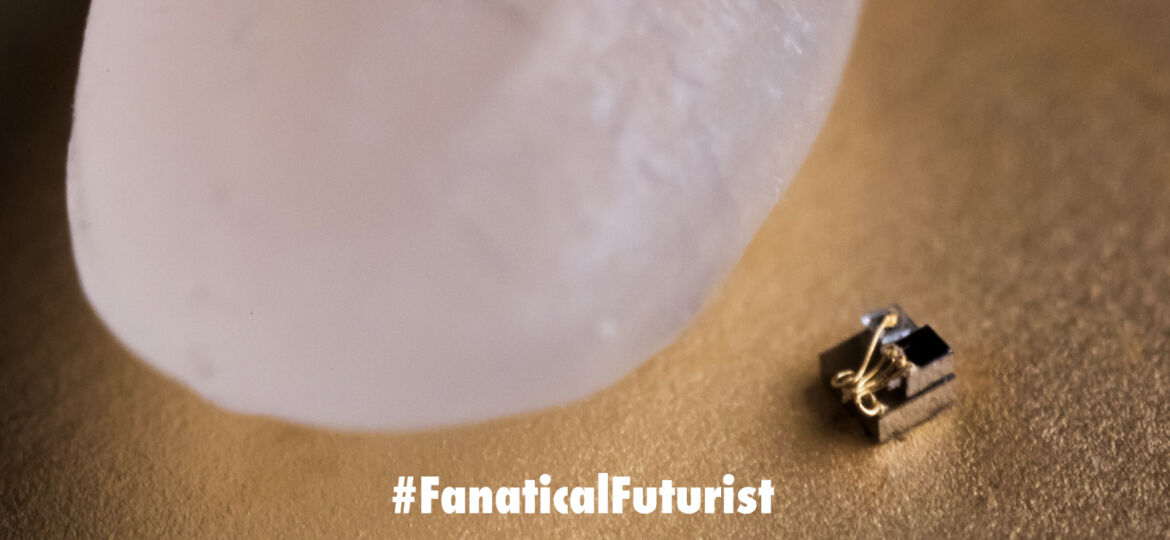
WHY THIS MATTERS IN BRIEF
As computing and AI processing gets moved to the edge of the network and into billions of IOT devices computers will have to get ever smaller.
Researchers at the University of Michigan have created the world’s smallest computer, again, after their previous micro-computers, called Micromotes, that were just 2 by 2 by 4mm in size, that were powered by solar cell batteries, were bested by IBM who built an even smaller micro-computer called a Crypto Anchor in March that measured just an incredible 1 by 1mm in size, and was smaller than a grain of salt.
Needless to say the development raised a few eyebrows at the university who felt they had to fire back and up the ante. After all, it’s unclear if the IBM computer even count as an actual micro-computer. The IBM device lost all its programming and data as soon as it turns off, unlike the Michigan Micromote, which retained its programming even when it wasn’t externally powered.

“It’s more of a matter of opinion whether they have the minimum functionality required,” said David Blaauw, a professor of electrical and computer engineering at the university who helped engineer the new micro-computer that is now just a tenth of the size of IBM’s at a tiny 0.3 by 0.3 by 0.3mm in size, which makes even the grain of rice sitting by it in the photo look like some giant comedy prop. The device was designed to be a precision temperature sensor that can report temperatures in clusters of cells with an error of about 0.1 degrees Celsius.
“When we first made our new micromote system, we actually didn’t know exactly all the things it would be useful for. But once we published it, we started receiving dozens and dozens and dozens of inquiries,” Blaauw said. “It could, for instance, measure the temperature of tumours and conduct other cancer studies, monitor oil reservoirs, conduct audio or visual surveillance, or even help in ‘tiny snail studies’.”
Source: University of Michigan

















[…] The World’s Smallest Computer Makes A Grain Of Rice Look Massive […]